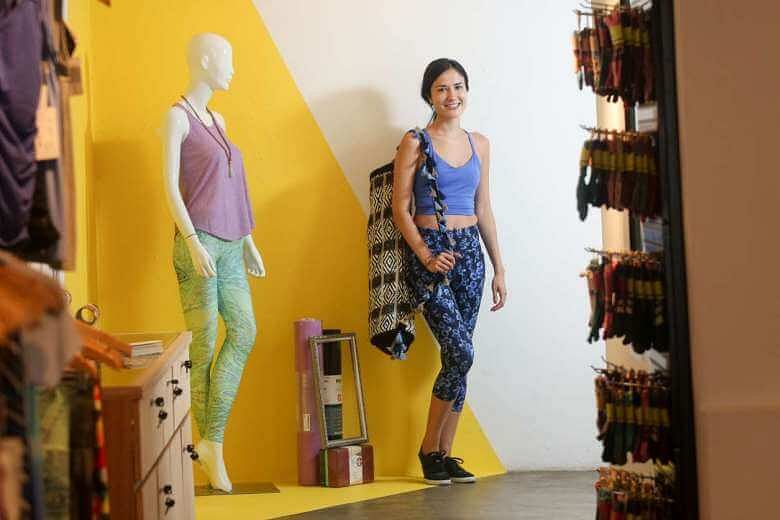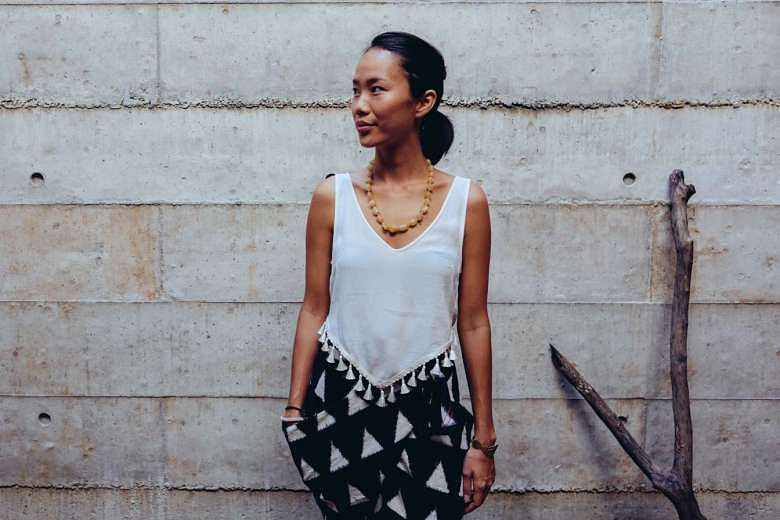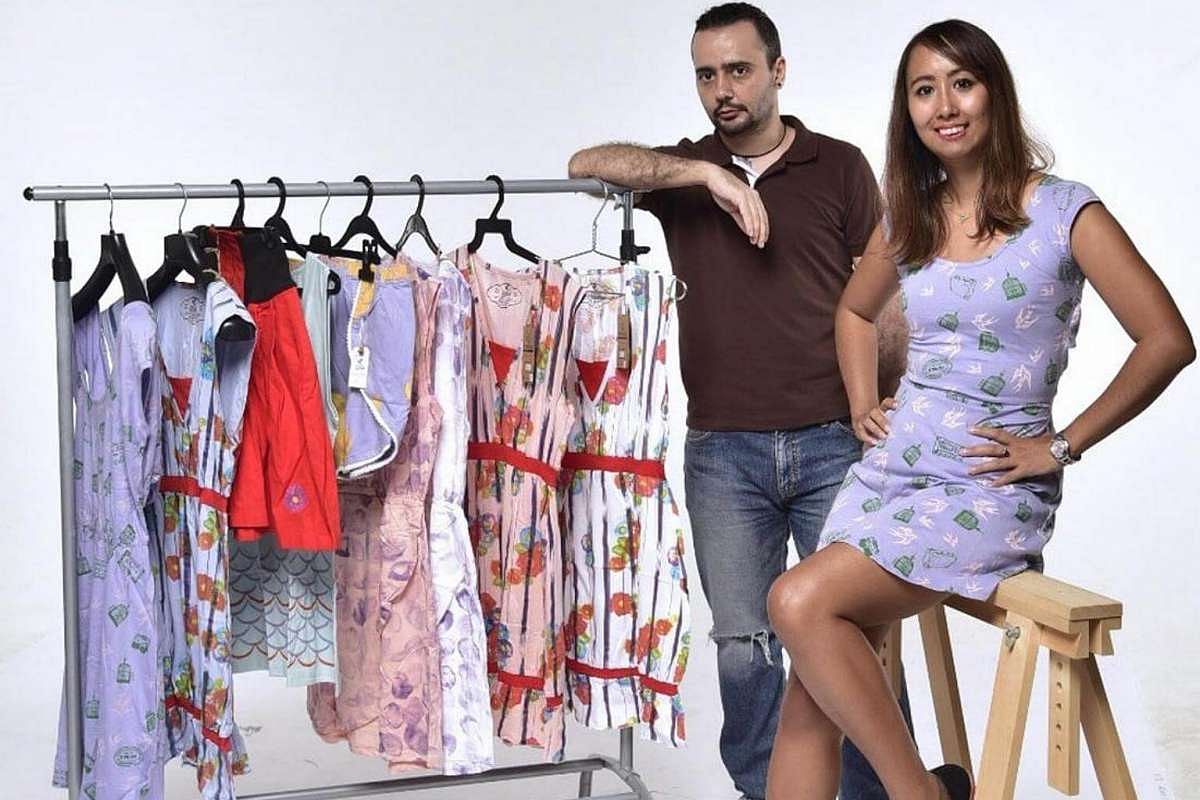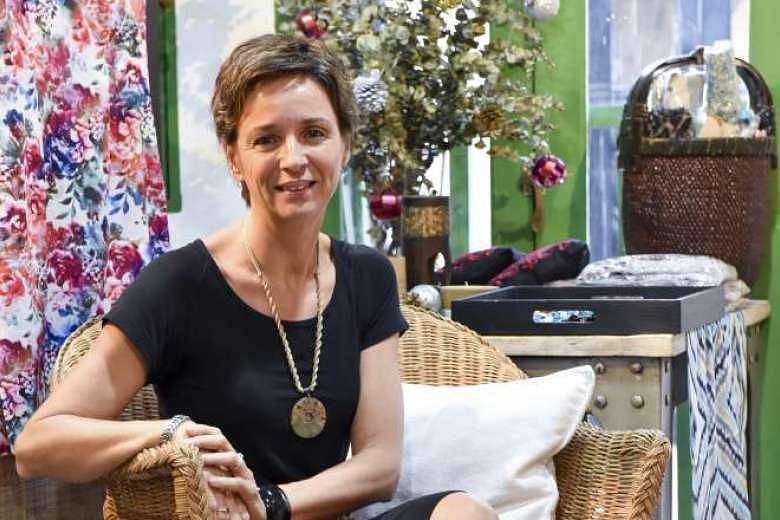-
What is eco-fashion?
Eco-fashion is a broad term used to define fashion products that have been made in a way that takes into account not only the environment, but also the working conditions of those involved in making them.
It typically encompasses:
•Clothes made with fabrics such as organic cotton and linen which are produced without the use of pesticides or fertilisers;
•Labels that substitute hazardous chemicals used in the manufacturing processes with safer alternatives;
•Clothes that do not use environmentally harmful dyes or bleaches. Dyes can damage water bodies and the people living near them when untreated wastewater is dumped into streams and rivers;
•Clothes made under conditions where workers are treated and paid fairly for their skills and labour.
Eco-friendly fashion catches on in Singapore
Labels are rolling out green collections as consumers become more eco-conscious




Eco-friendly fashion, once a niche segment, has emerged from the sidelines.
Major international brands, such as high-street label Zara, launched green collections recently, with clothing made from materials such as recycled wool, organic cotton and tencel, a sustainably grown fabric made from wood pulp.
These big names join eco stalwarts such as shoe label Toms, a decade-old brand that sells shoes made with vegan materials, and British luxury brand Stella McCartney, which monitors the environmental impact of its textile mills.
The trend is catching on in Singapore, with more shoppers going green and stores eager to meet the rising demand.
At home-grown label Matter, which sells printed clothing made by artisans in India, business has surged threefold since it opened two years ago.
Singapore multi-label store Touch The Toes, which sells sustainably made yoga apparel and accessories, has seen demand jump by 350 per cent over the past three years.
Other ethical brands, such as bamboo fibre fashion brand Zhai and organic cotton clothing label Etrican, have also ramped up production in recent years.
Retail experts are not surprised at this trend.
Mr Samuel Tan, course manager of retail management at Temasek Polytechnic's School of Business, says: "Consumers are generally becoming more eco-conscious and aware of how their lifestyles can impact the natural environment."
He points to several reasons, including campaigning by overseas activists, as well as eco-friendly apparel becoming more readily available on the market.
Activist groups such as international environmental group Greenpeace have actively campaigned for clothing companies to stop releasing hazardous chemicals during the manufacturing process.
According to a Forbes report in December last year, the apparel industry accounts for 10 per cent of global carbon emissions and remains the second-largest industrial polluter, after oil.
The production of synthetic fibres also emits gasses such as nitrous oxide, known to be 300 times more damaging than carbon dioxide - a contributor to global warming. Other chilling facts include how polyester fibre takes more than 200 years to decompose.
This aside, eco-fashion is also taking off here because, well, it is becoming more fashionable.
With major fashion retailers such as Italian fashion company Benetton Group and H&M promoting sustainability, eco-friendly fashion has evolved past its association with frumpiness to become stylish and desirable.
More players in the market also meant more competition and a possible decrease in price, says Mr Tan, who predicts the trend is here to stay. "With more variety and competitive pricing, consumers are likely to buy more of such products," he adds.
"Ever-prevalent climate changes will also be a big push for many people to reflect on the human impact on the environment."
Yoga instructor and owner of online wellness magazine True Living, Mrs Katy Koyich-Pourrat, 27, has been buying gear from Touch The Toes since 2014.
The British Canadian, who lives in Singapore, now buys only sustainable and eco-friendly fashion - a decision she made after watching the documentary film, The True Cost (2015), that detailed the impact of fashion on the planet.
"It makes me feel good about what I'm wearing and my choices as a consumer," she says.
However, shoppers such as Ms Amanda Ang, 28, were not drawn to green fashion for eco reasons. The counsellor buys dresses from H&M's conscious collection because they look good.
She says: "It's more important that I'll wear the clothes and that they fit my style. The clothes being more eco-friendly is a good bonus, but not a strong incentive."
Touch The Toes

The eco-friendly tag helps yoga wear company Touch The Toes keep its customers, says co-founder Eliza Inoue, 30. Close to half of the home-grown multi-label store's customers are returning shoppers.
Ms Inoue, a Singapore permanent resident who has been living here since she was eight, says people are initially attracted to Touch The Toes' vibrant designs and wide variety of yoga wear.
"But after they realise our apparel is eco-friendly... that is the key reason they keep coming back," she says. "Customers feel good when they do good for the environment.
Matter

The signature traditional block prints that adorn the garments produced by home-grown travel wear label Matter do not come easy.
Its co-founder Ho Renyung, who set up the company with her friend Yvonne Suner in 2014, searched for craftsmen in Rajasthan, India, to produce her designs made from fabrics including hand-loomed cotton and natural materials such as silk and linen.
The pair met six years ago while working in Mexico in hotel operations.
Etrican

Singapore-based fashion label Etrican considers ethical practices such a selling point, its name is a combination of the words "ethical" and "intricate".
Its clothes are made from only organic cotton, grown without chemical fertilisers and pesticides which can kill small animals nearby such as bugs, birds and squirrels.
Such cotton takes less energy and water to produce than non-organic cotton, and growing it also produces about 94 per cent less greenhouse gas.
Heads of State Millinery

Milliners typically use steamers that run on electricity to loosen fibres, making them malleable enough to shape into hats.
But all home-grown hatter Chee Sau Fen, 42, needs is the warmth of her hands.
Most of the entrepreneur's hats, under her Heads of State Millinery label, are made from abaca fibre, peeled by hand from the upper trunk of the abaca tree - a relative of the banana plant - native to the Philippines.
Zhai

Known for making clothes from bamboo fibre, home-grown eco- clothing brand Zhai is an extension of its eco-conscious team.
The seven-man group regularly use recycled paper bags and energy-saving light bulbs at the company's office in Ubi Avenue 3. They prefer to use computer tablets instead of printing documents, and have cut their paper usage by 70 per cent over the past two years.
The brand was founded in 2009 by Ms Kim Rose Allen, an Australian, and her business partner Eric Polfliet, a Belgian.
Join ST's Telegram channel and get the latest breaking news delivered to you.
A version of this article appeared in the print edition of The Straits Times on October 06, 2016, with the headline Eco-friendly fashion catches on in Singapore. Subscribe

